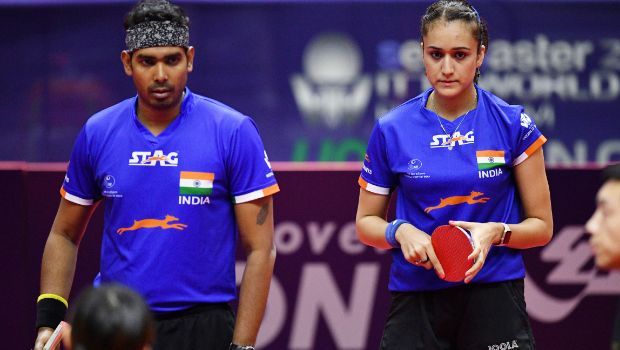
Only two of the twelve Indian competitors in the most recent World Table Tennis (WTT) Smash tournament, held in Saudi Arabia in May—Manika Batra and Sharath Kamal—persisted until the first day of the main draw. International TT’s high-profile circuit events required those who lost in the qualification rounds to pack up and head out the next day.
If the forthcoming China Smash serves as a model, Indian players might find themselves having to wait back at important tournaments, regardless of their outcome. The Table Tennis Federation of India (TTFI) is attempting to get around the rigorous WTT calendar by holding national camps at significant international tournaments in order to have more national camps.
Players occasionally travel halfway across the world for WTT events since they follow a knockout structure. If they lose their first qualification match, they must head back home or continue to their next location.
While the Asian Championships get underway in Astana, Kazakhstan, on October 7, the China Smash gets underway on September 26 and runs through October 6. Even if India’s best result in the Beijing competition is a quarterfinal in both the men’s and women’s singles, getting the players back for a national camp in India and then flying out again to Astana would be a logistical nightmare.
Thus, the China Smash location was chosen for the training camp by the TTFI and coach Massimo Costantini. It also helps because there is a direct flight from Beijing to Astana that takes less than six hours, but the trip from Bengaluru, where national camps are held, to Astana takes eleven hours. Long-term participation is something Costantini is also considering, particularly at significant WTT events in which the majority of the Indian squad will be present.
In an interview with The Indian Express, Costantini stated that the Indian players will have a one-of-a-kind experience. It will be unusual championships, where they are not only training for the ongoing tournament but also preparing for the next tournament. I don’t think it’s happened before. But this is the WTT calendar, and we have to adjust and adapt in the best way. Normally players take rest after their matches, but maybe—depending on their physical condition—there won’t be much time to rest, he said.
The thought is straightforward. With the Asian Championships coming up, we had no other option but to mix our preparation with the Smash. That’s why we will have the full contingent there, the support staff, and everyone, Costantini insisted.
A player who loses at a WTT event is not permitted to train at the arena’s practice tables and must vacate the hotel the next day. Rather than scheduling an independent training facility in Beijing, the TTFI has consented to reimburse WTT a sum to enable the players to maintain their access.
Most of the countries that are playing at the Asian Championships will be there in China, and they too, I suppose, will be doing something similar. The idea of staying at the WTT arena is to maintain a competitive environment. You also get to spar with some of the best players in the world, so that’s an added incentive, the 66-year-old Italian expressed.
When asked if the TTFI asks for foreign players as sparring partners, Costantini replied that it’s sometimes the other way around. Generally, we just play with whoever is at the practice tables. The players know each other as they constantly meet on the circuit. Of late, it’s more of other people coming to us and asking if they can play with us. So yes, I don’t think sparring partners will be a problem. Even if there aren’t other international players, our players can practice against each other, and that’s good enough, Constantini concluded.
